The English Martyrs SIXTH FORM COLLEGE
Prospect
2025 - 2026
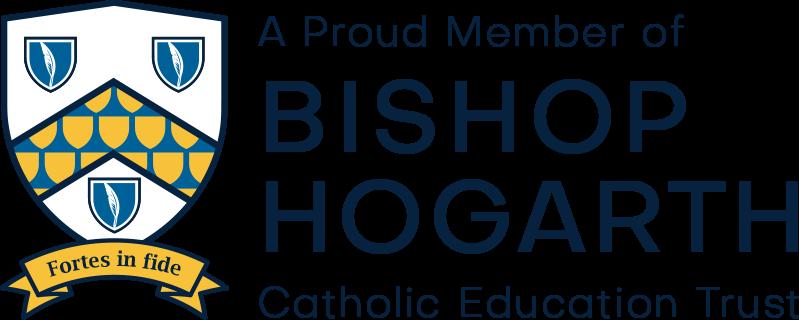
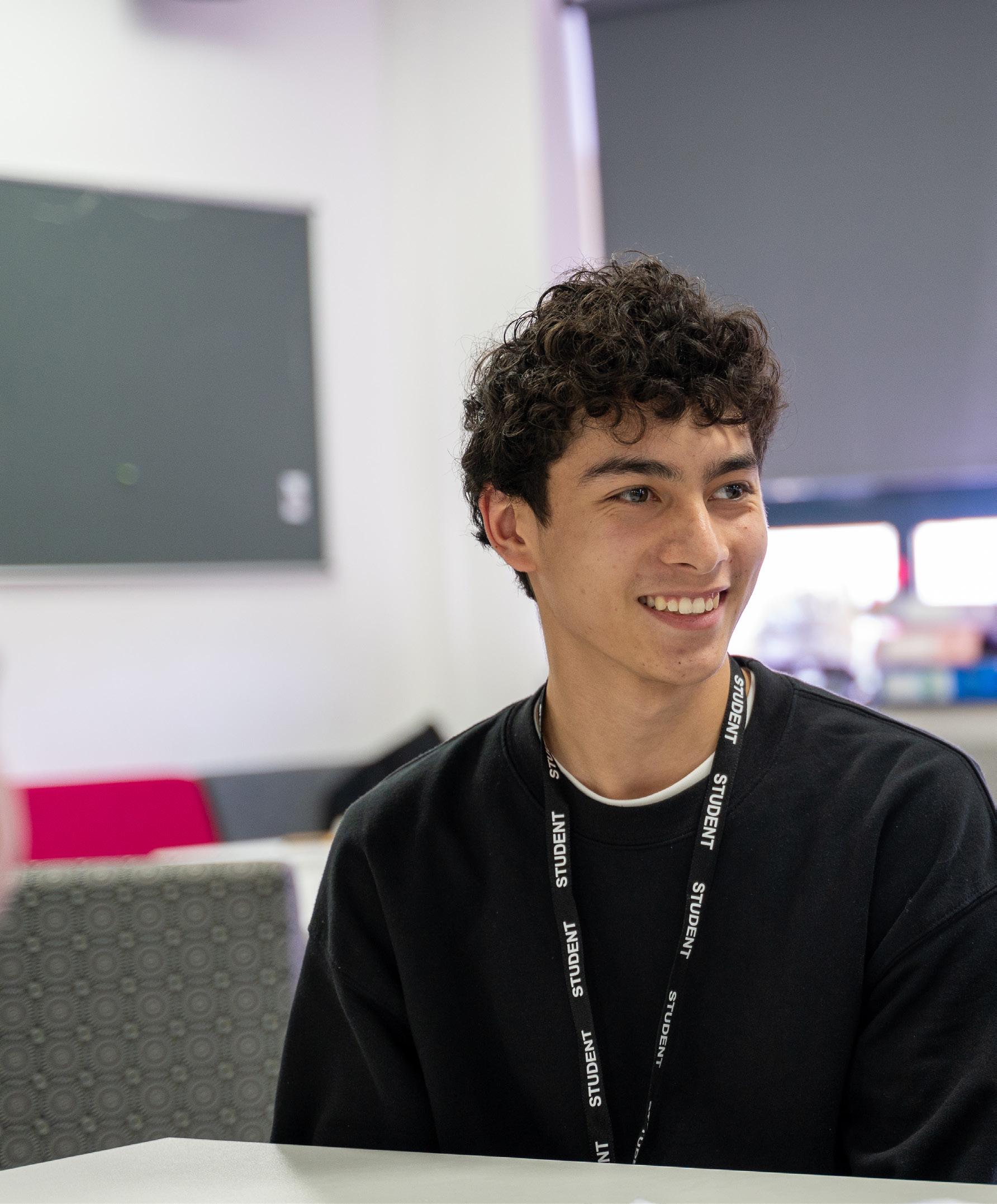
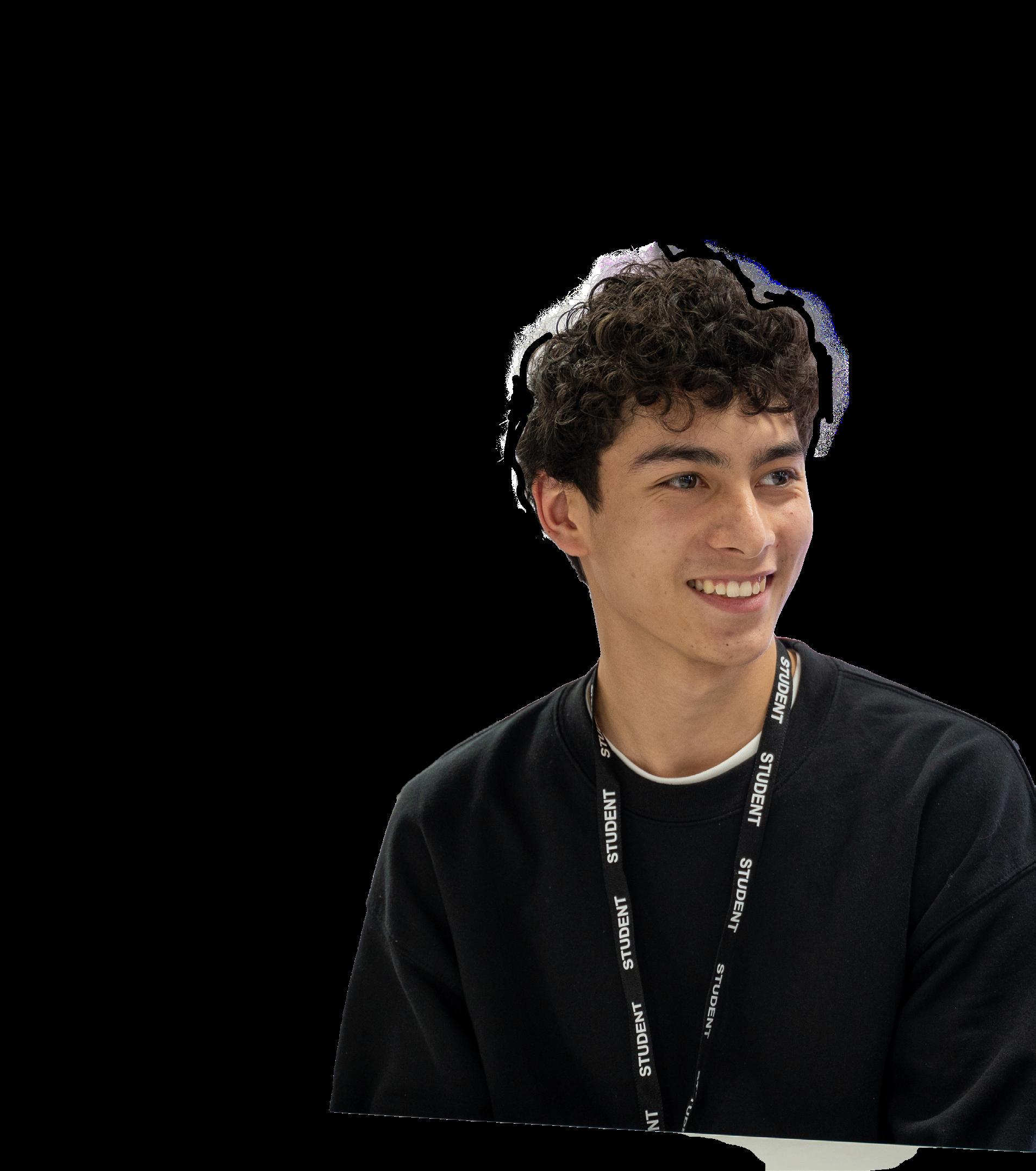
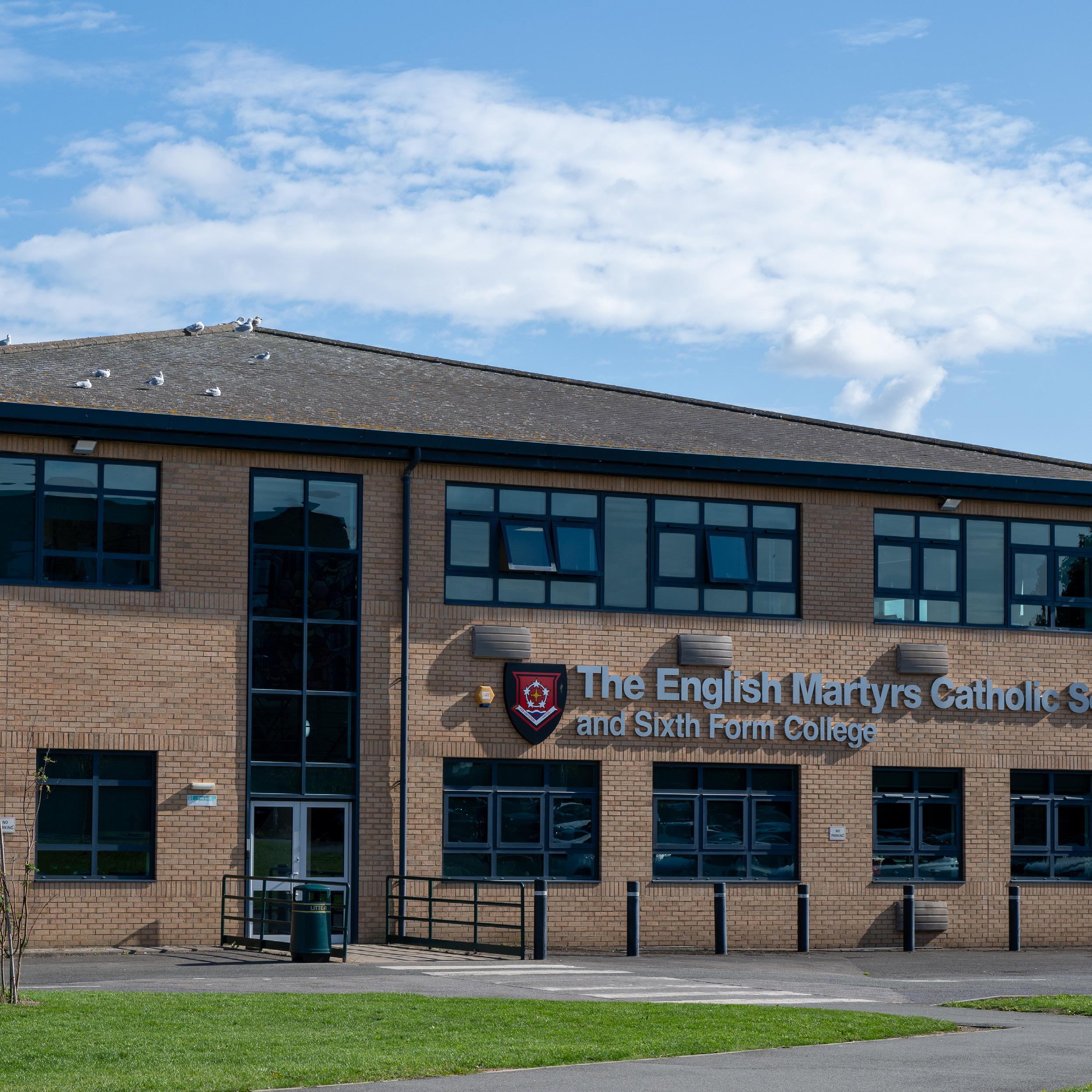


Prospect
2025 - 2026





We are delighted that you have chosen to study with us and we look forward to welcoming you to our Sixth Form College. We hope you are excited to begin your journey with us and we want to ensure that you are fully prepared for the start of term.
Over the next few weeks, we will be in touch to provide you with all the information you need to get started. This will include details about enrolment, your timetable, and any other important updates. Please keep an eye on your emails and our website for the latest news.
In the meantime, if you have any questions or concerns, please do not hesitate to get in touch. We are here to support you every step of the way and we want to make sure that your transition to Sixth Form is as smooth as possible.
Mrs L Henderson
Director of Sixth Form
IN A SURVEY ABOUT EM6, 100% OF OUR STUDENTS SAID
“ “
Staff at EM6 were friendly and approachable.
“ “ “ “
They received excellent advice and guidance from us during enrolment and in the weeks following. They felt safe at the college.
At EM6, we offer more than just excellent results. Here’s why our students thrive:
✓ Expert Teaching – Learn from passionate subject specialists who bring their expertise into every lesson.
✓ Financial Support – Access a range of bursaries to help with travel, meals, and study resources.
✓ Free Office 365 – All students receive free access to Microsoft Office tools to support their learning.
✓ Personalised Support – We tailor our guidance to meet your individual academic and wellbeing needs.
✓ Careers Guidance – Receive specialist careers advice to help you plan your future with confidence.
✓ Strong Partnerships – Benefit from our established links with universities, training providers, and employers.
✓ Student Voice – Share your ideas and shape your experience through our active Student Leadership Team.
✓ Modern Facilities – Enjoy our newly refurbished study areas and common room designed for focused and social learning.
✓ Quality Assured – OFSTED has rated EMS as Good, recognising our commitment to high standards.
A stand-alone qualification worth up to 28 UCAS points. Students choose a topic beyond their A Levels and develop skills in research, project planning, and presentation—highly valued by universities and employers.
Personal & Professional Development
Accredited by Teesside University, this weekly programme builds skills in employability, well-
being, and community engagement, preparing students for life beyond Sixth Form.
Charity & Volunteering
We’re involved in:
Local community projects
Student leadership roles
Fundraising for our chosen charity
John Paul II Award
Duke of Edinburgh Award
Is a Catholic college – do I have to be Catholic to enrol?
Absolutely not! We welcome people of all faiths - as well as those who do not profess a faith - and we pride ourselves upon the diverse set of beliefs we have within our college community.
What does being in a Catholic college actually mean?
It means we provide opportunities for our students to embrace their faith if they wish to do so. For those who are not Catholic, however, it still offers a lot of benefits. We strongly believe in the personal dignity of everyone and we really see ourselves as a family, a community, who all work together to create an environment of mutual respect and support.
Will I have to say a lot of prayers every day?
for Enrichment Include:
✓ iDEA Award
✓ Dance
✓ EMS Chamber Choir
✓ Musical Theatre
✓ EMS Orchestra
✓ Netball
✓ Football
✓ Table Tennis
✓ Young Enterprise
✓ Philosophy Club
✓ A Level Subject Catch
Up Sessions
✓ Pit Band
✓ Drama
✓ Trampolining
✓ Reading Club
We do have a chapel where students are free and welcome to drop in and pray. There are opportunities to be involved in collective worship.
As a college, we have Christmas & Easter Services and a Leavers’ Mass. These opportunities to come together are very much focused on reflecting and celebrating.
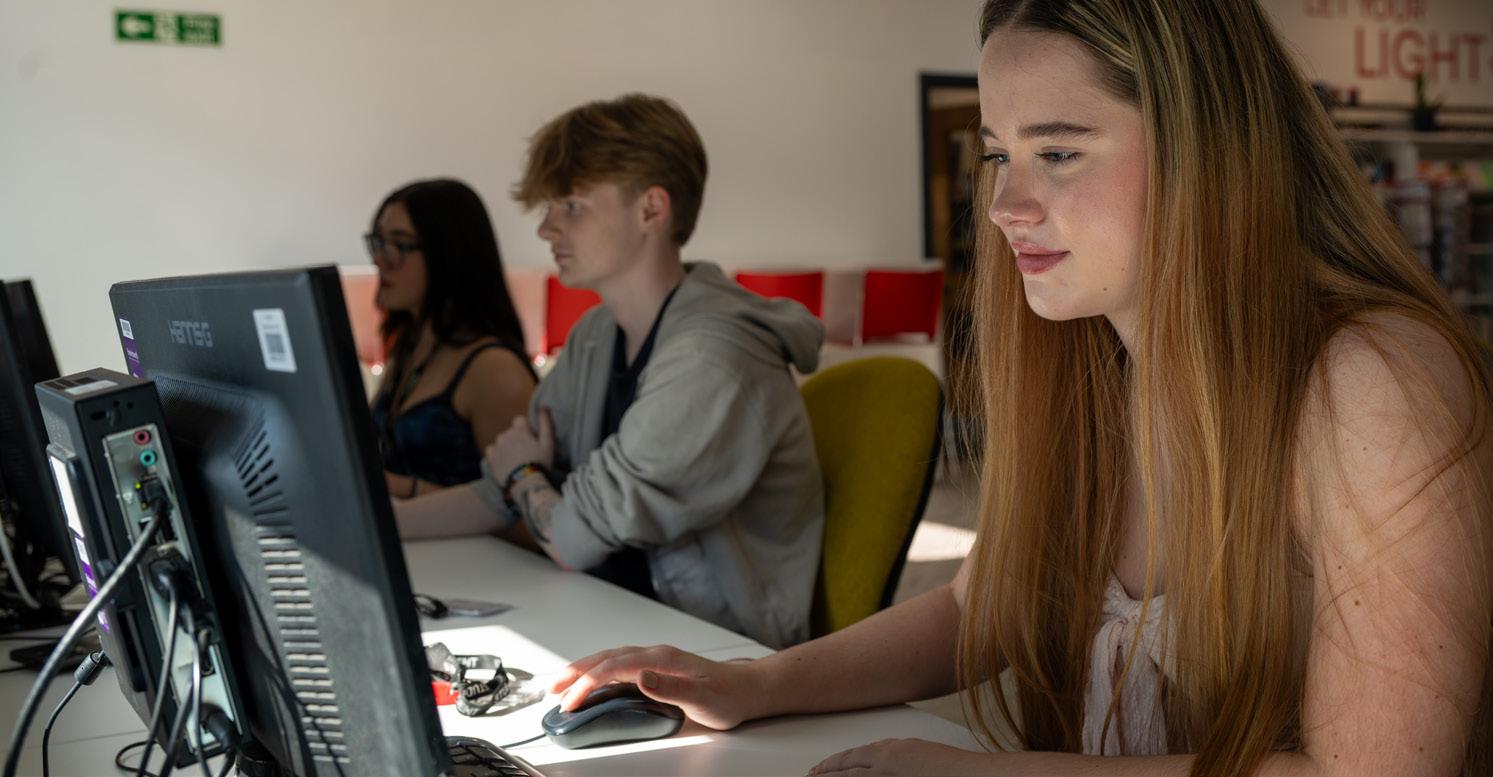
Scotland
University of Glasgow
University of Aberdeen
University of St Andrews
University of Edinburgh
Heriot-Watt University
Edinburgh Napier University
North East
Northumbria University
Newcastle University
Northern School of Art
Teesside University
University of Sunderland
Durham University
Yorkshire & the Humber
York St John University
Leeds Beckett University
University of Leeds
University of York
University of Hull
University of Sheffield
Leeds Trinity University
Sheffield Hallam University
University of Huddersfield
Hull York Medical School
East of England
University of Cambridge
Anglia Ruskin University
University of Hertfordshire
Wales
Bangor University
Aberystwyth University
North West
Liverpool John Moores University
University of Liverpool
Edge Hill University
Manchester Metropolitan University
Lancaster University
University of Manchester
University of Central Lancashire
University of Chester
Liverpool Hope University
Royal Northern College of Music University of Salford
West Midlands
Keele University University of Warwick
East Midlands
De Montfort University
University of Leicester
University of Lincoln
Nottingham Trent University
London
Queen Mary University of London
University College London
Kings College London
Kingston University
South East
University of Brighton
University of Oxford
Oxford Brookes University
University of Reading
University of Southampton
South West
University of Bristol
University of Bath
University of Exeter
Falmouth University
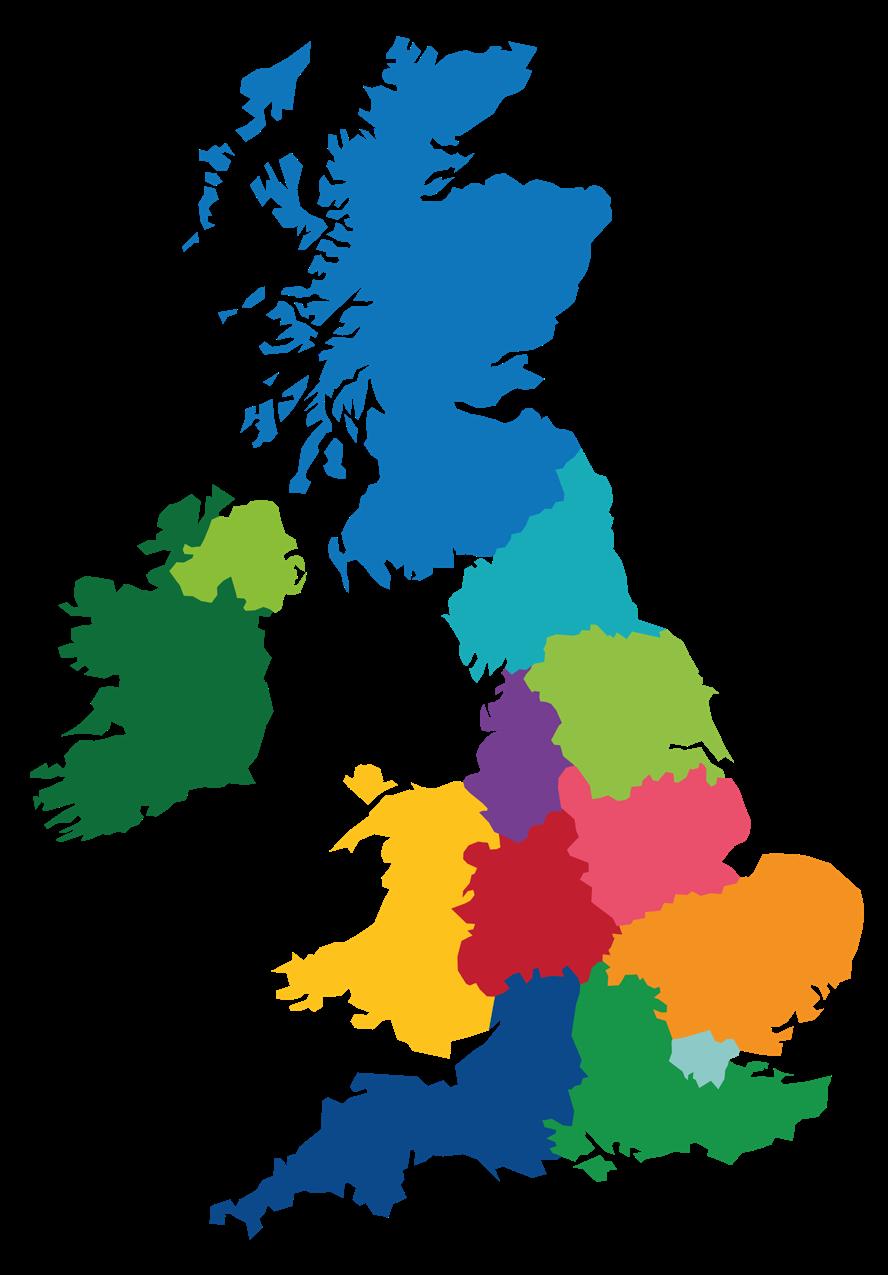
We have a team of qualified and experienced careers specialists to help you plan your career pathway. Plus many partnerships with universities.
EM6 have excellent links with local universities which includes: Partners with Newcastle, First Choice with Sunderland, Supported Progression with Durham and with Northumbria we have NU Entry for year 12 and Destination Northumbria for year 13.
We are part of Realising Opportunities, a national programme where students can receive a reduced offer from a range of prestigious universities.
Strong links with many universities, training providers and local organisations
We’ve built strong partnerships that offer qualifying students additional support and reduced university offers from institutions such as Leeds, UCL, Warwick, and York. We also maintain close links with Oxford and Cambridge, with a planned programme of activities throughout the year.
From our Class of 2021, students progressed to top universities including Cambridge, Durham, Liverpool, Edinburgh, and Sheffield, studying subjects such as Medicine, Modern Languages, Korean Studies, and Archaeology.
Beyond university pathways, we collaborate with Amazing Apprenticeships and the Department for Work and Pensions to support students into employment. We also have an established connection with the EDF Mentoring Scheme and work closely with Hartlepool College of Further Education.
The Transport Bursary is available to students qualifying for the General Bursary to meet the costs of a bus pass if the student lives outside a 2–3 mile radius of college.
More information about all the financial support we offer students at EM6 can be found here: ems6.bhcet.org. uk/about-us/ financial-support
We have various bursaries that students may be eligible for:
Available to students who are in care, care leavers, receiving Income Support or Universal Credit in their own name, or receiving both Employment and Support Allowance (ESA) and Disability Living Allowance (DLA) or Personal Independence Payments (PIP). Value: Up to £1,200 per year.
If you live more than 2 miles from college and your household income is less than £30,000 per year, you may be eligible for a travel pass covering public transport costs to and from college.
Students aged 16–18 eligible for free school meals will receive a daily allowance of £2.41, automatically added to their student ID card for use in the college canteen.
For students who achieved grade 4 or above in GCSE Maths but need extra support. Value: Up to £500 per year for textbooks, equipment, and resources.
More information available at: ems6.bhcet.org.uk/about-us/financial-support

Designing and making sits at the centre of creative practice directly influenced by real world employment opportunities.
3D Art and Employment encourages students to push creative boundaries by making objects inspired by real-life scenarios. Individuality is celebrated, with opportunities to pursue personally meaningful projects.
Students produce a wide range of work using drawing, painting, photography, sculpture, ceramics, 3D printing, and other materials— reflecting techniques used in professional creative industries.
This course highlights how art can serve a purpose and lead to employment. The blend of art and 3D design is central to today’s creative sector and highly valued for its innovative approach.
In Years 12 and 13, you’ll complete one main unit each year. The Personal Investigation (60%) is theme-based and tailored to your interests, while the Externally Set Assignment (40%) is based on an exam paper starting point.
Architect - Landscape Artist - 3D ModellerIndustrial Design - Toy Designer - Transport / Car Designer - Stage / Set / Prop Designer.
100% of our students have achieved an A*C grade in Art & Design since 2016
Students are expected to have at least a grade 4 at GCSE level in an Art and Design subject. A portfolio can be viewed for consideration by an art teacher on request if you have not achieved the required grades.
Students will learn to develop and produce personal, creative, independent work, analyse their own visual work, as well as evaluate and learn from artists, designers and crafts people.
In year 12 and 13 you will study one main unit of work. This Personal Investigation (60%) will be thematic and will evolve based on your particular focus and interests. You will also complete a project based on a starting point from the examination paper (40%). In all, there will be 1 unit of study in year 12 and 1 unit of study in year 13.
The main focus will be the development of your sketchbook or journal. This will show evidence of your chosen thematic unit and experimentation with a variety of artistic techniques.
Students who have undertaken art and design here have gone on to varied degree courses such as architecture, graphic design, fine art, textiles, fashion and photography.
Art and Design can lead to many careers including: Artist - Architectural Illustrator - Book IllustratorGraphic Illustrator - Commercial Artist - Courtroom Artist - Special effects make up - Tattoo Artist.
100% of our students have achieved an A*- C Grade in Art & Design since 2016
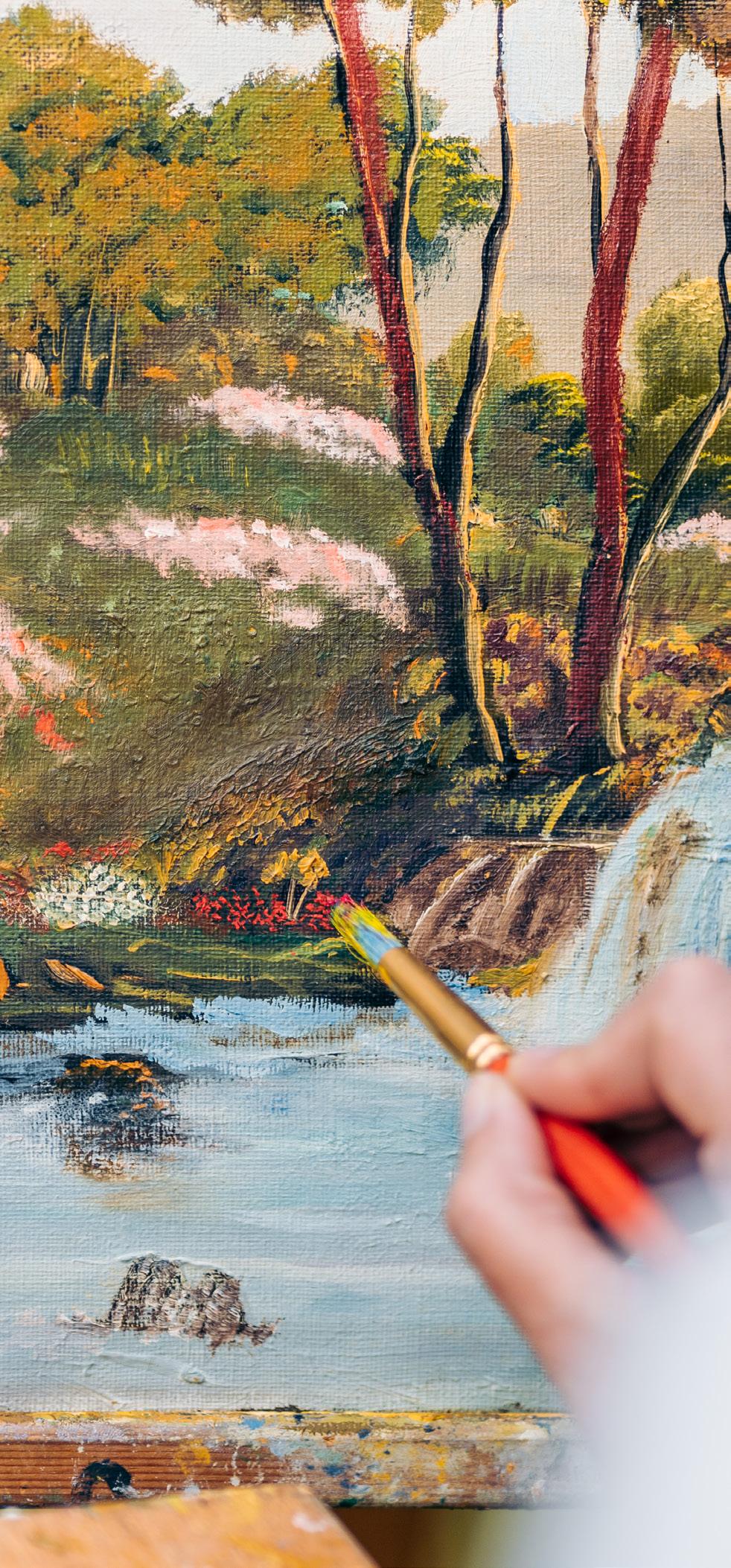
Students are expected to have at least a grade 4 at GCSE level in an Art and Design subject. A portfolio can be viewed for consideration by an art teacher on request if you have not achieved the required grades.
The Art & Design A Level offers students the flexibility to specialise in the medium of textiles. You will benefit from the guidance of a specialist textiles practitioner.
Textile art could be defined in terms of batik, dying, machine and hand embroidery/ embellishment. These techniques focus on creativity, and surface design artists use these techniques to convey conceptual and/or aesthetic ideas that surround notions of personal or societal identity, thought, value, and beauty.
This course allows students to see how Art Textiles and Surface Design can be viewed with a purpose, and how it can lead to employment prospects. There is a vast array of creative industries out there waiting to be explored and this course may be just the one to capture your interest, or propel you to the future career you wish to work in.
In year 12 and 13 you will study one main unit of work. This Personal Investigation (60%) will be thematic and will evolve based on your particular focus and interests. You will also complete a project based on a starting point from the examination paper (40%). In all there will be 1 unit of study in year 12 and 1 unit of study in year 13.
Textile/surface design artists gain inspiration from all around the world and have very exciting jobs in a broad range of different industries such as:
Fashion Designer/ Consultant - Display Artist - Accessory Designer
Fashion Merchandising - Pattern Maker - Costume Designer
Students are expected to have at least a grade 4 at GCSE level in an Art and Design subject. A portfolio can be viewed for consideration by an art teacher on request if you have not achieved the required grades.

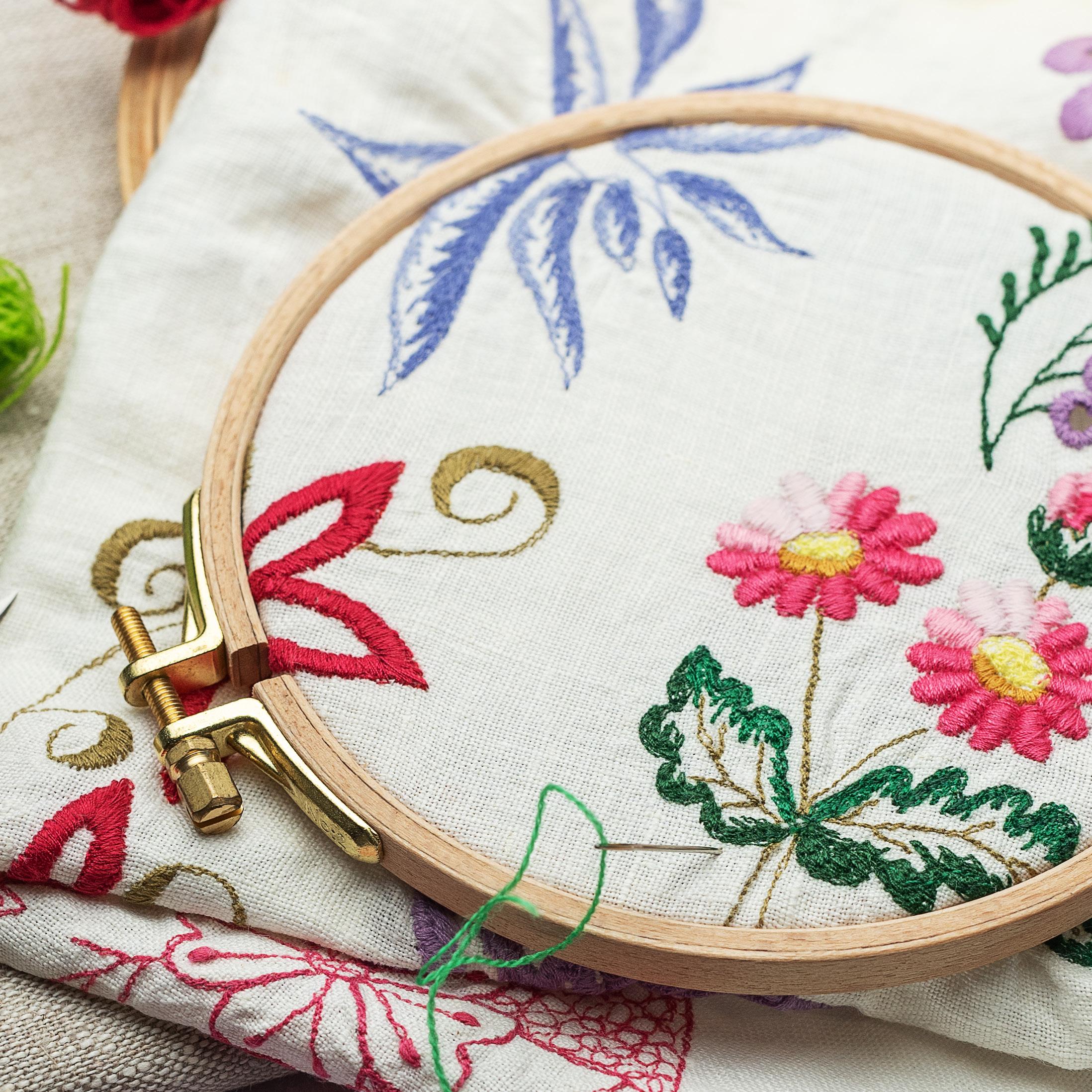

Biology is one of our most popular A level choices and if you are fascinated by the living world and the interaction between life forms and their environments, then this
You will study 8 units across two years:
1. Biological molecules
2. Cells
3. Organisms exchange substances with their environment
4. Genetic information, variation and relationships between organisms
5. Energy transfers in and between organisms
6. Organisms respond to changes in their internal and external environments
7. Genetics, populations, evolution and ecosystems
8. The control of gene expression
You will also have the chance to gain your practical competency award (in addition to your a level) by completing 12 compulsory practicals when your skills of planning experiments, collecting data, analysing experimental results and making conclusions will be assessed by your teacher. This award will demonstrate that you are a competent laboratory practitioner, ready for operating in university laboratory environments.
The course is taught by Biology specialists and all practical work is internally assessed. The examinations are held at the end of the two year course and take the form of three 2 hour examinations.
At least a grade 6 in Biology or a grade 6-6 in Combined Science. A grade 5 from the higher paper in GCSE Mathematics is also required. The exam will contain 10% of marks for mathematical calculations.
In Business A Level, you’ll explore a wide range of businesses—from small UK firms to global corporations—across both service and manufacturing sectors. The course examines how businesses operate internally and how they respond to the fast-changing external environment.
You’ll study well-known companies through the lens of different stakeholders and gain insight into the strategic decisions businesses make to stay competitive. Topics include business purpose, ownership, leadership, stakeholders, marketing, operations, finance, human resources, and strategic planning and change.
Assessment includes two internally assessed exams in Year 12 and three externally assessed exams in Year 13, using a mix of short answers, data response, essays, and case studies.
This qualification opens doors to degrees in Business, Marketing, HR, Accounting, Finance, and Economics, and complements subjects like Engineering, Law, Design, and Geography. It also prepares you for the world of work— whether you aim to lead a multinational or start your own business.
As an extra-curricular opportunity, you can run your own ‘Young Enterprise’ company, gaining real-world experience and even adding “CEO” to your application form.
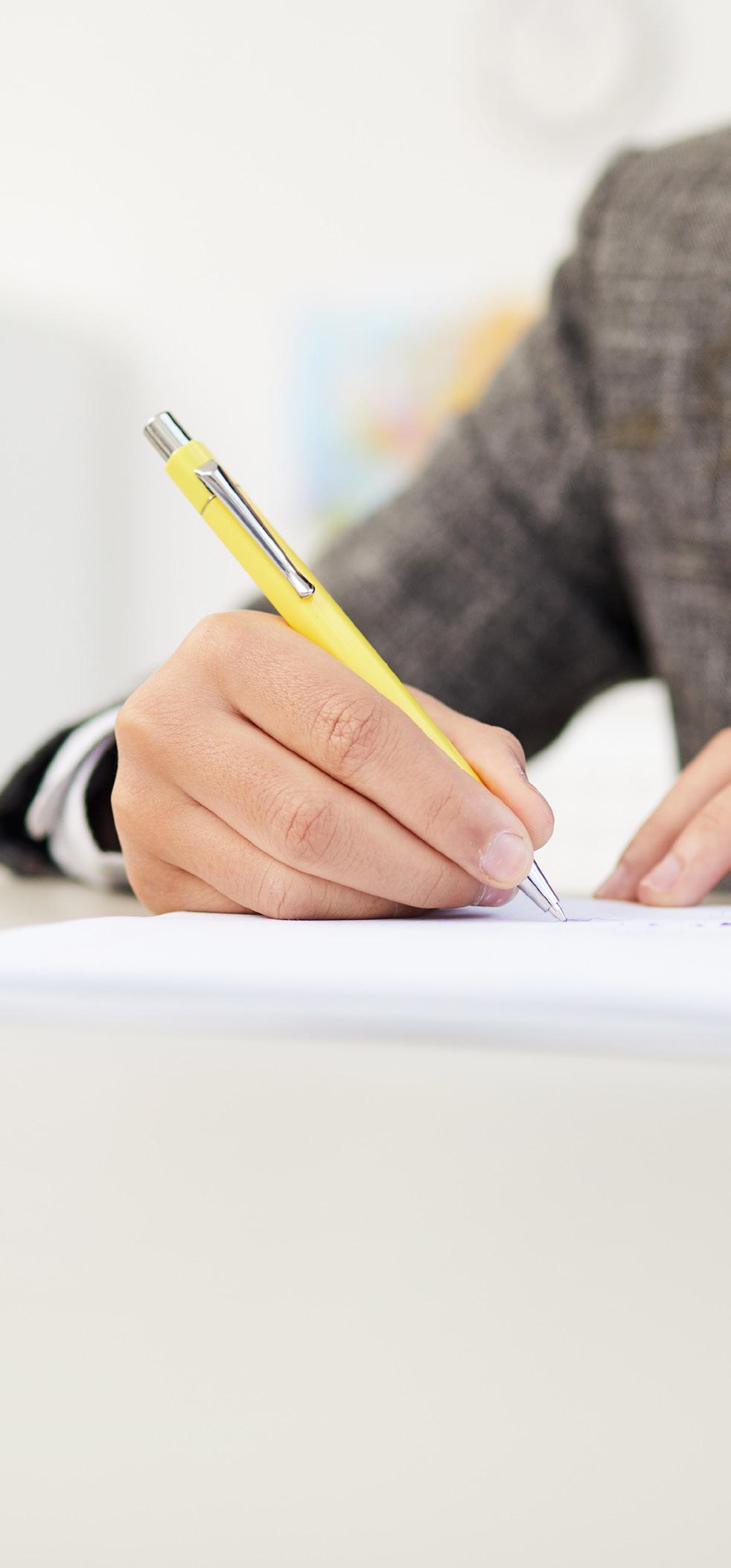
You do not need to have studied GCSE Business Studies. It is expected that students have achieved GCSE English Language and Maths at grade 4 or above. Please note the new Business Studies course does have a lot more Maths content than in prior years.

The course will develop students’ ability to apply the scientific method to many real life situations, and will give students an opportunity to discover science through a wide range of experiments.
For those who want a career in science, engineering and medicine, the course will provide one of the important university entry requirements.
Practical work and problem solving skills are crucial for any successful chemist. Students will carry out a range of laboratory practical experiments to support their learning. Problem solving will make up the vast majority of lessons whereby you will be encouraged to think outside of the box and apply your knowledge to unfamiliar situations.
Two exam papers contain 105 marks. They each contribute 35% to the A level grade. A third exam paper contains 40 marks from practical skills and data analysis, 20 marks testing any area of the specification and 30 marks from multiple choice questions (total of 90 marks.) This contributes 30% to the A level grade.
This course requires students to demonstrate their competency in practical investigations via a lab book.
At least a grade 6 in Chemistry or a grade 6-6 in Combined Science. A grade 6 in GCSE Mathematics is also required.
This course is ideal for students who are curious about how computers function at a fundamental level and want to develop strong programming skills. It combines practical coding with theoretical study, offering a balanced approach to learning. Practical sessions focus on individual tasks to build key programming techniques, while theory lessons include group work and independent research.
In Year 12, you’ll study Computing Principles and Algorithms & Problem Solving. These units introduce core concepts and give you hands-on experience with languages such as Visual Basic, JavaScript, HTML, and CSS. In Year 13, you’ll deepen your understanding through topics like Computer Systems and Advanced Programming, and complete a Programming Project. This project challenges you to identify a real-world problem and create a working solution using a broad range of coding skills.
Throughout the course, you’ll gain a solid foundation in programming, problem solving, and the legal and ethical issues surrounding computer systems. It’s an excellent preparation for further study or careers in computing, software development, and related fields. 100% of students have achieved A*-C grades in Art & Design since 2016, reflecting the department’s commitment to high standards and student success.

Students should have a minimum of a grade 6 in Maths at GCSE due to the level of computational thinking required to complete the course. No formal Computing or ICT based qualification is required for entry; however, you may find some concepts easier to understand if you’ve studied Computer Science previously at GCSE level.

The course will allow you to develop a strong knowledge and understanding of job roles in a large number of disciplines across the media industry. You’ll gain hands-on experience of the production process, developing your own creative ideas and gaining skills in a range of industry standard software.
You’ll complete an additional exam unit on Social Media and Globalisation, exploring its impact on individuals and businesses, censorship, and planning a campaign based on a client brief.
You’ll also complete five coursework units from options like Digital Animation, 3D Modelling, Graphic Design, Interactive Media, Comics, Journalism, Photography, and AudioVisual Promos. Each unit involves working to a
client brief and producing your own media product.
Unit choices are based on group strengths, allowing you to specialise in areas that interest you most.
This course supports progression to university or careers such as graphic designer, animator, web developer, sound editor, or media producer..
This course must be taken alongside the Digital Media Single A Level course as a double option.
The Extended Certificate in Digital Media is a course that has been designed to provide students with a technical level qualification, giving opportunities to develop a wide range of skills within the dynamic interactive media industry in the key fields of audio, audio-visual and print-based media.
The Digital Media course includes two externally assessed units—Pre-Production and Planning, and Analysing Media Products—giving you insight into how the industry works and helping you apply professional practices in your own projects.
You’ll also complete three coursework units: Create a Media Product, Sound Production, and Advertising Media. These allow you to explore the full media production process, from research and planning to design and delivery, while considering legal and clientbased constraints.
With the rapid growth of the digital media industry, this course has become increasingly popular. In the past two years, 72% of students achieved Distinction* or Distinction grades. It opens doors to careers and further study in areas such as graphic design, social media, web development, storyboarding, game design, and illustration.

You don’t need a media qualification to take this course, but creativity and imagination are essential. A GCSE grade 4 in English Language is recommended to support the research and planning required for each project.

You will learn about how the economy works and how individuals and firms make decisions. The course also looks at the policies adopted to help improve society, both nationally and internationally.
Economics is at the heart of many issues reported in the media every day— unemployment, inflation, government spending, taxation, exchange rates, and international trade. This course helps you understand how economies function and gives you the tools to critically evaluate economic claims, including those made by politicians. It’s an excellent foundation for careers in politics, finance, and business.
You’ll explore how markets operate and why they sometimes fail, how governments intervene, and how national economies perform in a global context. Topics include price determination, production and costs, market structures, income distribution, and
macroeconomic policy. You’ll also study the circular flow of income, aggregate demand and supply, and the role of financial markets.
In Year 12, you’ll sit two internally assessed exams, and in Year 13, three externally assessed exams. Assessments include short answers, data responses, essays, and case study analysis, helping you develop strong analytical and evaluative skills.
Studying Economics will give you a deeper understanding of the forces shaping our world and prepare you for further study or a wide range of career paths.
At least a grade 5 in Maths.
English Language allows students to engage with language in the world around them.
Are you a prescriptivist who winces at bad grammar, or a descriptivist who embraces language change? English Language gives you the chance to explore your own views while studying how language works in written, spoken, and digital forms.
You’ll develop analytical skills by examining a wide range of texts and data, and enhance your creative writing and research abilities. The course is fastpaced and interactive—expect to work in teams, deliver presentations, and even lead parts of lessons. Independent linguistic investigations will deepen your understanding beyond the classroom.
Taught by experienced specialists, this popular course consistently achieves excellent results. It’s a gateway to a wide range of careers, from law and journalism to advertising, teaching, media, and more—and could even lead you to become a writer.
Assessment includes two final exams and a coursework folder, which features a language investigation and an original piece of writing.

In order to be considered for this course you must have a grade 4 at GCSE level in English Language. A GCSE grade 4 or above in Mathematics or 4-4 in Science is also essential.

This course aims to broaden your understanding of genre through reading and analysing a range of challenging literary texts, focusing initially on the concept of tragedy, you will explore seminal texts from canonised tomes to contemporary classics.
You will find this course: rewarding, enriching and exciting. You will develop skills in both written and spoken English and you will also learn how to read texts closely and discuss a wide range of issues.
Literature is life, and all aspects of humanity are under the microscope in this consideration of poetry, prose and drama. You will be required to work independently and think critically as well as show your creative side.
This course will be taught using a range of learning and teaching activities including: teacher and student led lessons, presentations, group work, independent study and research.
The course is taught by Literature specialists and is an extremely popular course with excellent results.
At A level you will complete two examinations and produce a coursework folder of two essays. You will also be asked to keep a Reading Journal throughout the course. You must read the core course texts but you should also read widely around the subject, every text is a product of its context, the debate of which is often as intense as it is intriguing. Students often go on to study Literature at university feeling fully prepared and ready for the challenge..
In order to be considered for this course you must have a grade 6 at GCSE level in both English Language and English Literature.
Textiles have such a wide range of applications that they affect every aspect of our daily lives.
Fashion and Textiles A level gives you the opportunity to develop your capacity to design and make products and to explore the relations between design, materials, manufacture and marketing.
The subject will enable you to develop a wide range of skills, including working with others, thinking creatively and making quality products in Fashion and Textiles.
This creative and thought-provoking qualification gives students the practical skills, theoretical knowledge and confidence to succeed in a number of careers. Especially those in the creative industries.
You will investigate the historical, social, cultural, environmental and economic influences on fashion and textiles design and technology, whilst enjoying opportunities to put your learning into practice by producing prototypes of your choice.
You will gain a real understanding of what it means to be a designer, alongside the knowledge and skills sought by higher education and employers.
We’re confident you’ll find Fashion and Textiles an exciting and inspirational course.

A GCSE grade 4 or above in Maths, English and Science along with a Technology subject would normally be required. The GCSE in Technology should be a grade 9-4 and preferably be in Fashion & Textiles. Other Technology or Art subjects, however, can be taken into account.

There has never been a better or more important time to study A level Geography.
Geography is one of the most wide-ranging and contemporary A levels, covering topics from global poverty and climate change to political systems and urban development. It encourages curiosity and helps you explore the big issues facing our planet, while developing an understanding of the decisions being made around them.
The course builds a broad skill set, including scientific research, statistical analysis, essay writing, and critical thinking—skills highly valued in today’s uncertain job market. Geography graduates are increasingly sought after for their versatility and depth of knowledge.
You’ll study both human and physical geography. Human topics like urbanisation and globalisation spark debate and connect your learning to global contexts. Physical geography explores natural hazards, their causes, prediction methods, and management strategies.
Assessment is split into three components:
• Physical Geography (Water & Carbon Cycles, Coasts, Hazards) – 40%
• Human Geography (Global Systems, Changing Places, Urban Environments) – 40%
• Geographical Investigation – a student-led fieldwork project worth 20%
Geography offers a powerful lens through which to understand the world—and your place in it.
Although a qualification in Geography at GCSE is desirable it is not essential. All students need a GCSE grade 5 in English Language and Maths.
If you are interested in current events, finding out about how government works and why people vote for different political parties, then Government and Politics is the ideal course for you.
A Level Politics offers a deep dive into how democracy works in the UK and the USA. In Unit 1, you’ll explore UK politics, including voting behaviour, electoral systems, pressure groups, and political parties. You’ll also study core political ideologies such as conservatism, liberalism, and socialism.
Unit 2 focuses on UK government, examining how Parliament, the Prime Minister, and the constitution function and interact. You’ll also explore a noncore ideology, such as anarchism, to broaden your understanding of political thought.
In Unit 3, you’ll study US politics and compare it with the UK system. Topics include the US Constitution, federalism, Congress, the presidency, the Supreme Court, landmark cases, and voting behaviour. Assessment is through three exams at the end of Year 13, making up 100% of your final grade. This course is ideal for students interested in current affairs, political systems, and careers in law, government, or public service.
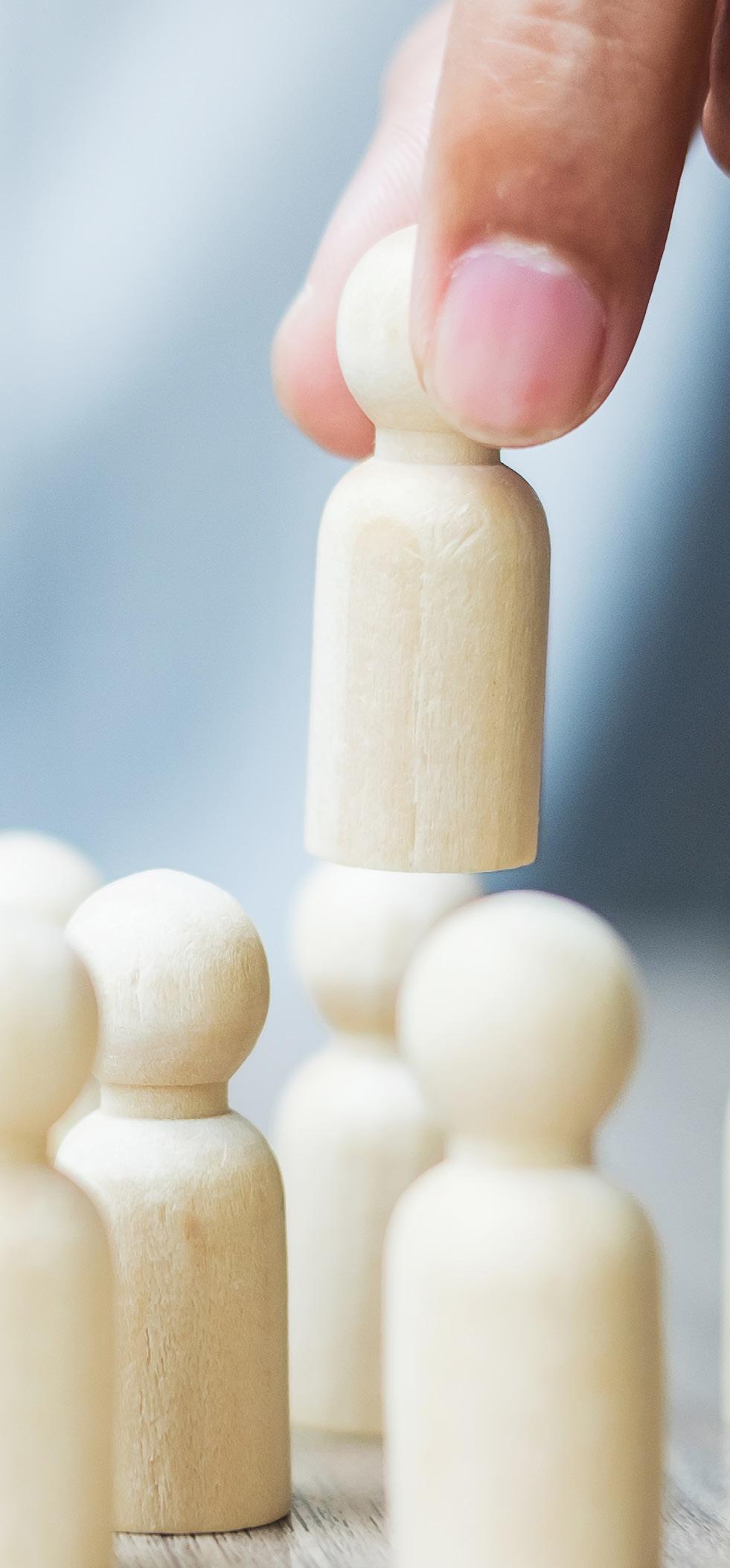
All students need a GCSE grade 5 English Language and Maths.

The course is designed to provide a specialist programme of study that covers the key knowledge and practical skills required to progress in the field of Graphic Design. Students will study disciplines such as advertising, illustration, packaging design, typography, website design, desktop publishing and animation.
Graphic Design encourages creativity, independence, and personal style. Students develop key design skills through sketchbook research and digital production using industrystandard Adobe software. The course allows you to play to your strengths and build a unique creative portfolio.
In both Year 12 and Year 13, you’ll complete a Personal Investigation tailored to your interests. This is broken into smaller projects covering advertising, illustration (traditional and digital), packaging, typography, and
interactive media. You’ll also complete a final project based on an externally set theme.
Many students progress to Art and Design foundation courses or go straight into Graphic Design degrees, thanks to the strength of their portfolios. This course provides an ideal foundation for a career in one of the most exciting and modern areas of design.
100% of our students have achieved an A*C grade in Graphic Design since 2016
Students are expected to have at least a grade 4 at GCSE level in an Art and Design subject. A portfolio can be viewed for consideration by an art teacher on request if you have not achieved the required grades.
This course is available in a Single or Double A Level Option and ideal for anyone pursuing a career in a health related profession.
Students can choose between a single or double A Level equivalent in Health and Social Care through the BTEC Level 3 qualification. The Extended Certificate (single) is ideal for those interested in the sector alongside other subjects, with progression to a wide range of degree courses. It covers four key units: Human Lifespan Development, Supporting Individuals with Additional Needs, Working in Health and Social Care, and Meeting Individual Needs.
The National Diploma (double) is suited to students aiming for a career in health or social care. It includes the same core units as the single course, plus four additional ones: Promoting Public Health, Work Experience, Current Research, and Safe Practice. Vocational placements offer valuable hands-on experience and help build essential professional skills.
Both courses are assessed through 60% coursework and 40% exams. Students must complete an Enhanced Disclosure application due to the nature of the work. The course is highly popular and consistently achieves excellent results.

It is not essential that students have studied Health and Social Care previously but students must have five or more GCSEs at grade 4 or above. A grade 4 in English Language is required.

If you are interested in the world around you, this course is perfect for you. It offers the opportunity to explore fascinating events of the past whilst building essential skills for future life.
This course explores dramatic periods of change, conflict, and leadership across three key units and a coursework project.
Unit 1: England 1547–1603 (25%)
Study the reigns of Edward VI, Mary I, and Elizabeth I. Learn how religion shaped politics and how Elizabeth restored stability and defended England.
Unit 2: Russia 1894–1941 (15%)
Examine the fall of the Tsars, the 1917 Revolutions, Lenin’s rise, and Stalin’s brutal dictatorship.
Unit 3: Civil Rights in the USA 1865–1992 (40%)
Follow the fight for equality by African Americans, women, Native Americans, and workers. Discover how movements evolved and how leaders like Martin Luther King Jr. made an impact.
Coursework (20%)
Write a 3,000–4,000 word essay on a topic from Germany or Elizabethan England, exploring key historical debates.
Assessment
Three exams in Year 13 (80%) and one coursework project (20%).
Although a qualification in History at GCSE is desirable it is not essential. All students need a GCSE grade 5 English Language and Maths.
Through language learning, students acquire a deeper understanding and awareness of different cultures.
Studying a foreign language is highly valued by universities and employers. It builds communication, problem-solving, and interpersonal skills essential in today’s global workplace. You’ll explore topics like current trends, culture, multiculturalism, and politics in your chosen country. Grammar is developed throughout, enabling you to speak and write fluently by the end of the course. In Year 13, you’ll complete an independent research project on a topic of personal interest, deepening your cultural and linguistic understanding.
Taught by specialist staff, students receive a mini iPad for access to authentic materials and independent learning. Overseas trips are often available to enhance language skills and cultural experience.
Assessment:
Paper 1: Listening & Reading (50%)
Paper 2: Writing (20%)
Paper 3: Speaking (30%)
Language A Levels are excellent for combining with subjects like History, Maths, Business, or Law, and are increasingly included in many degree courses.
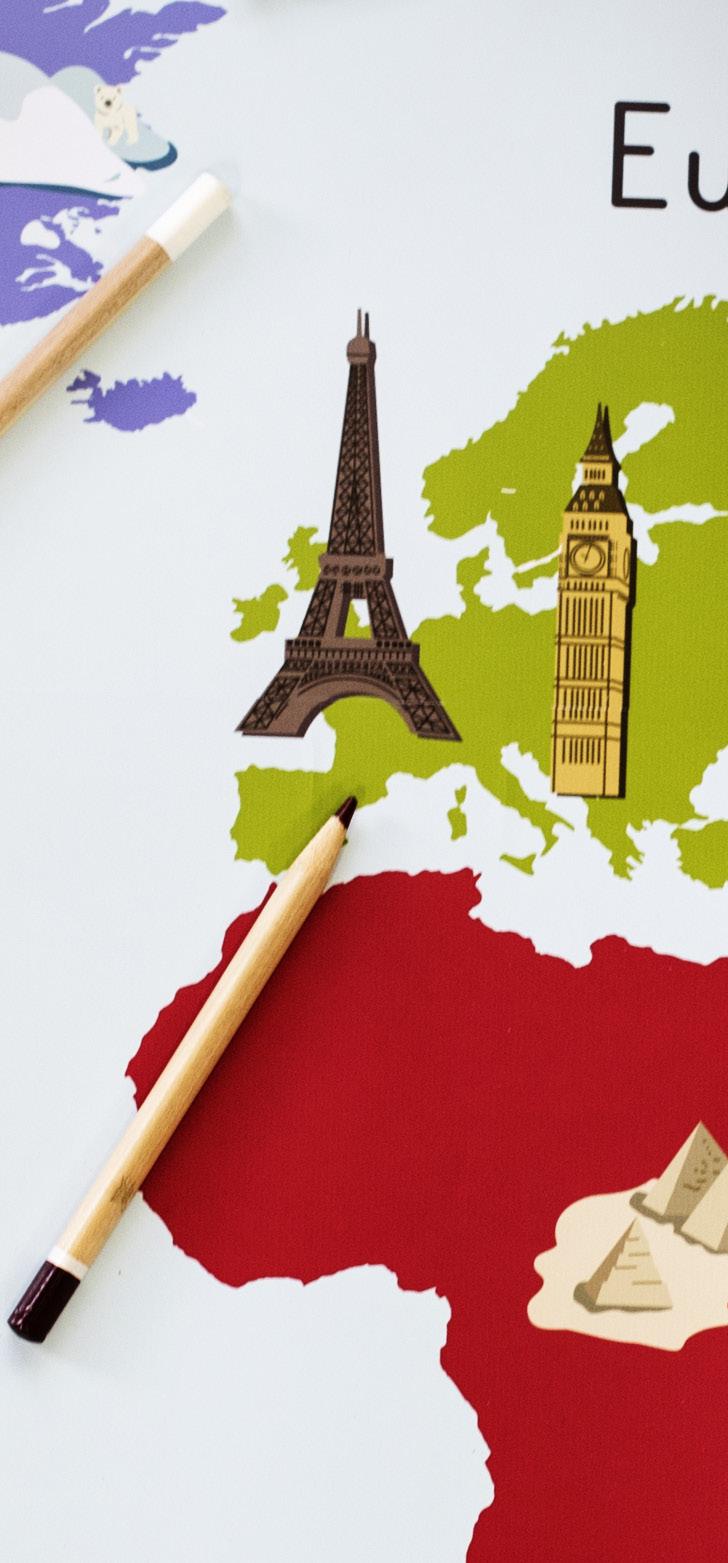
All students need a GCSE grade 5 English Language and Maths.

A robust legal system is the foundation of a fair society.
Law is a fascinating subject that develops highly transferable skills such as analysis, evaluation, and problem-solving. Whether you’re interested in a legal career or simply want to understand how the justice system works, this course offers valuable insight into both criminal and civil law.
You’ll study how laws are created—through legislation and judicial precedent—and explore key areas such as criminal offences (including murder and manslaughter), tort law, and contract law. You’ll apply your knowledge to realistic scenarios, deciding whether someone would be guilty or liable in a given situation.
Learning is mostly classroom-based, but you’ll also visit a court to see law in action. You’ll work in teams, deliver presentations, and solve legal problems collaboratively, helping to build confidence and communication skills.
Assessment:
Three two-hour written exams in Year 13, featuring scenario-based questions and essays.
Law A Level opens doors to a wide range of careers including policing, social work, government, business, and the legal profession. Many students go on to study Law at university and become solicitors or barristers.
In 2022, 92% of students achieved A*–B grades—well above the national average.
The course is academically demanding as students must be able to construct high quality essays in which they apply and critically evaluate legal rules and concepts. Students will require at least 5 GCSEs at grade 4 or above which must include English Language.
Further Mathematics is a challenging qualification which both extends and deepens your knowledge and understanding beyond the standard A level Mathematics.
In addition to the skills developed in A level Mathematics, you will develop further algebra techniques and study topics such as: matrices, complex numbers, mathematical proof, and different equations in the Pure Mathematics modules as well as some Applied Mathematics.
In Year 1, you’ll study Pure and Decision Mathematics. Pure topics include complex numbers, matrices, vectors, and proof, while Decision focuses on algorithms, networks, game theory, and linear programming.
In Year 2, you’ll deepen your understanding of complex numbers and vectors, and explore differential equations and group theory. You’ll also study additional Statistics or Mechanics beyond the standard A Level Maths content.
This course is ideal for students planning to study Mathematics at university—many top institutions recommend or require it.
Assessment:
100% exam at the end of Year 13, with regular internal assessments and weekly homework throughout the course.
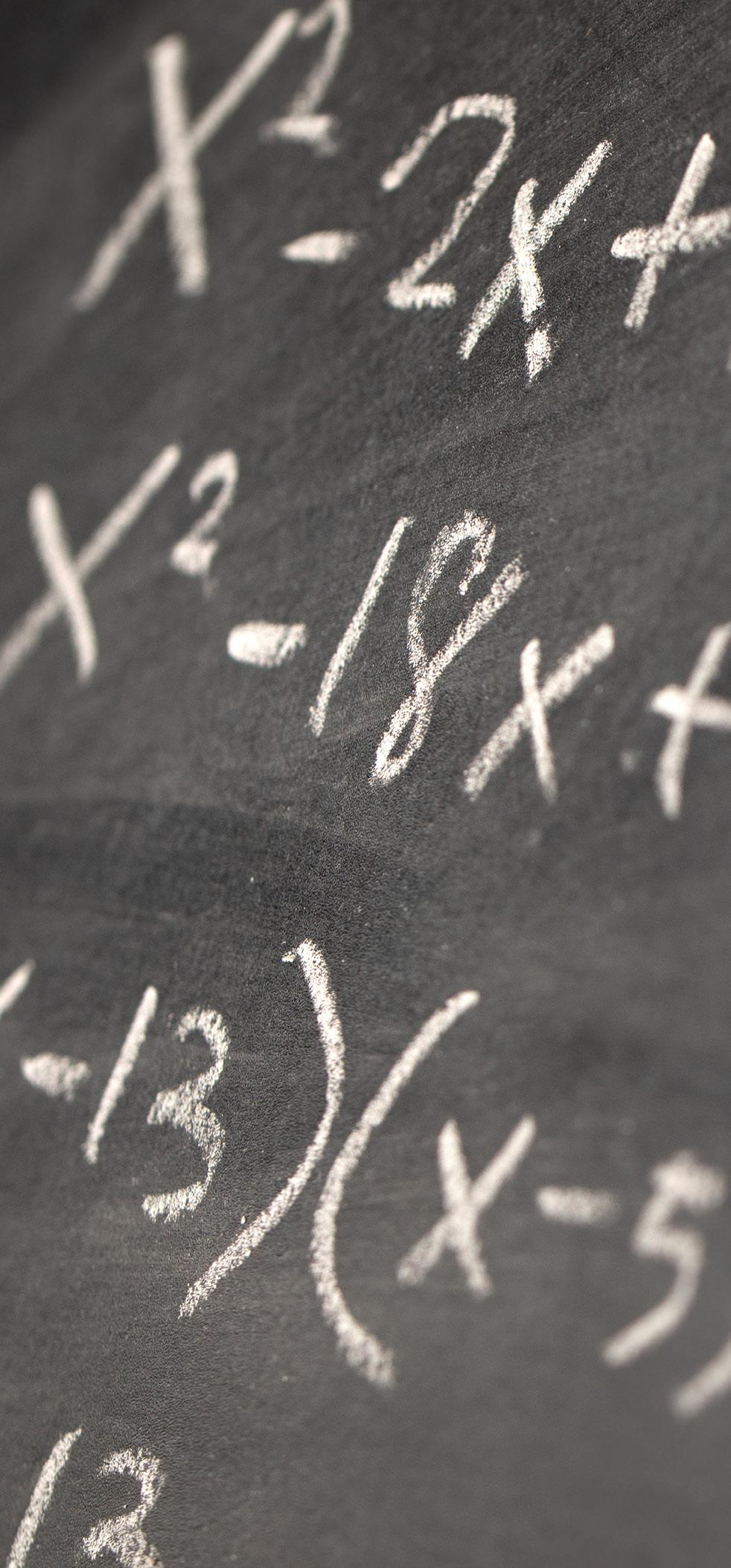
GCSE Maths at grade 8 or above. Students who wish to follow this course should do so alongside Mathematics A level.

Through performing, composing and listening, Music A level gives students a chance to refine their musical skills and appreciate a wide range of music more deeply. The subject is split into three component parts, developing both academic and practical skills.
The course includes three components:
• Appraising Music – Study a wide range of music and learn to identify complex features. You’ll explore three core areas and one optional topic (e.g. music for theatre).
• Performing Music – Perform around 10 minutes of music, either solo, in an ensemble, or using music technology.
• Composing Music – Create two compositions: one free and one to a set brief, using software like Sibelius or ProTools.
Taught by experienced music specialists, this academic A Level is highly respected by Russell Group universities. Past students have progressed to institutions such as Cambridge, Durham, and top conservatoires.
There are many extra-curricular opportunities, including EMS Live, Orchestra, Big Band, and Chamber Choir. A Level musicians are expected to lead ensembles and mentor younger students.
GCSE Music and GCSE English Language at Grade 4 or above. Grade 5 standard (or equivalent) in their first instrument/voice. Grade 5 theory would be an advantage – extra classes are available to support A-level music studies.
This course gives students an understanding of all aspects of the discipline and combines it with the opportunity to specialise in the performance of Drama, Dance, Music and Theatre Production.
This subject blends practical and written work, encouraging creativity and performance skills. In Year 1, you’ll build practical techniques and explore the role of the arts in the community. In Year 2, you’ll work independently on solo performances and study key practitioners while collaborating with peers.
Designed with the workplace in mind, the course develops technical ability, theoretical understanding, and transferable skills like planning, communication, and project development. Assessment includes both internal and external components.
Students regularly take part in musicals, theatre trips, workshops, and extracurricular groups. Many progress to university, performing arts schools, or freelance careers in the industry.
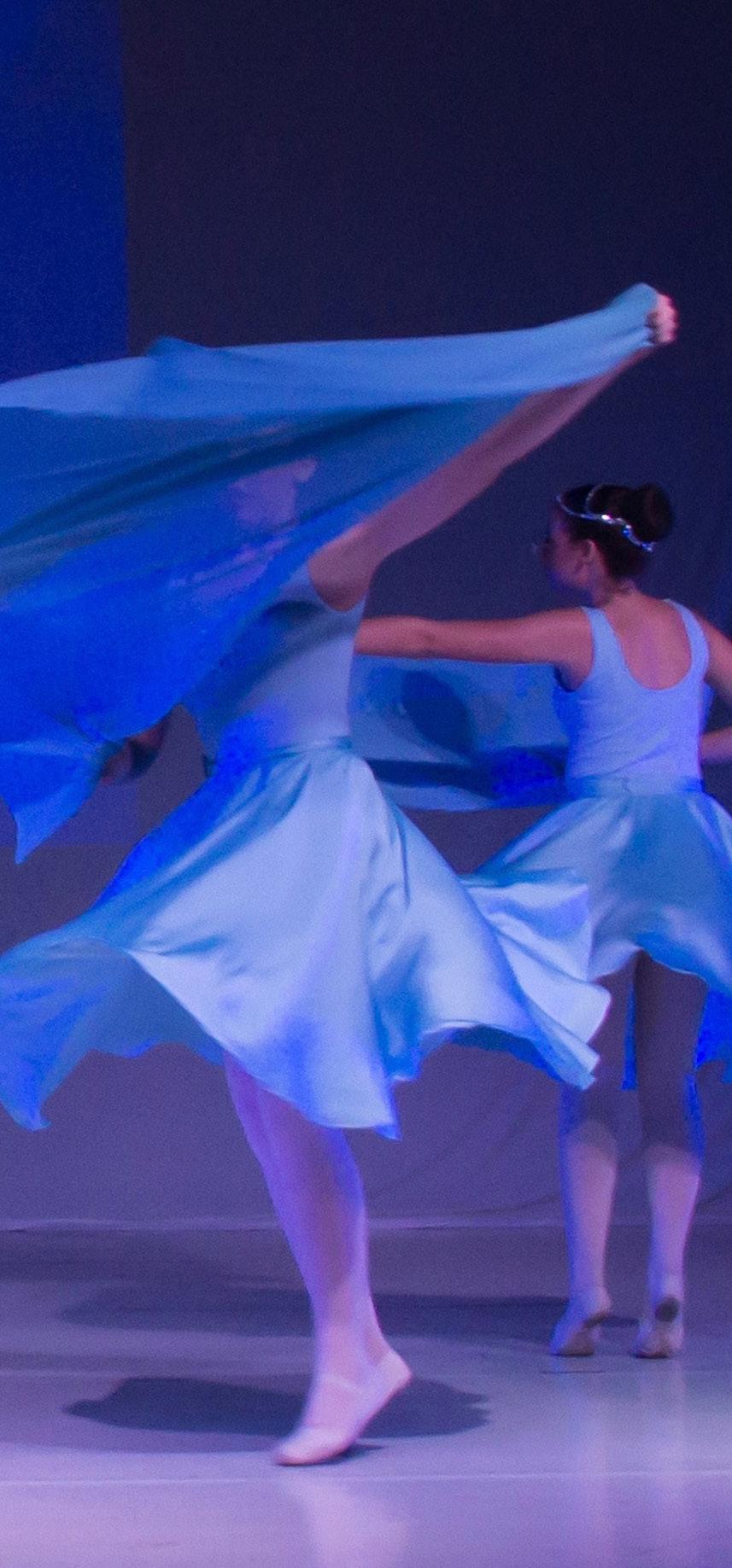
GCSE grade 4 or above in English Language and any experience within the arts. A grade 9-4 in Drama, Dance or Music preferred but a GCSE in these areas is not essential.

This is an art centred subject encouraging creativity, individuality and independent learning. The subject is a blend of practical – darkroom and digital – and written critical studies and evaluation.
This creative course is split into two components:
• Personal Investigation (60%) – Explore a chosen theme through research and a portfolio of work, including techniques like portraiture, landscape, close-up, and experimental photography.
•
• Externally Set Assignment (40%) – A creative portfolio based on a theme set by the exam board, completed in Year 13.
Students are encouraged to be independent and imaginative, drawing inspiration from artists and photographers. You’ll experiment
with both traditional and digital techniques using our darkroom, portrait studio, and fully equipped computer suites with Adobe Creative Suite.
There are opportunities for UK and international trips to support your photographic studies. The course is popular and consistently achieves excellent results. Past students have progressed to university, apprenticeships, and careers in advertising, fashion, journalism, film making, and content creation.
There are no specific qualifications needed for the Photography course although an ‘artistic eye’ is an advantage.
This is a subject involving advanced scientific models and theories, problem solving and mathematical skills. A large part of the course involves the use of mathematical skills (such as algebra) combined with the understanding of scientific theories, to attain answers pertaining to topics such as Particle Physics, Mechanics and Electricity.
This course prepares students to tackle big questions about the universe—from subatomic particles to galaxies—and to design experiments that explore physical phenomena.
You’ll complete 12 required practicals (e.g. stationary waves, emf, gravitational fields, elasticity) and submit a lab book for the Physics Practical Endorsement, essential for science-related university courses.
Taught by specialist staff, all practicals are internally assessed. Final assessment includes three 2-hour written exams at the end of Year 13.
Physics is a challenging subject that requires curiosity, resilience, and strong independent study skills. Students often progress to top universities or prestigious apprenticeships.
Each year, one Year 12 student is awarded Physicist of the Year by the Ogden Trust, with a chance for a scholarship at Durham University.

At least a grade 6 in Physics or a grade 6-6 in Combined Science. A grade 6 in GCSE Mathematics is also required. Recommended combined study with A level Mathematics

Psychology is the science of behaviour and mind, embracing all aspects of conscious and unconscious experience. It is an academic discipline which seeks to understand individuals and groups by establishing general principles and researching specific cases.
Psychology is now recognised as a science reflecting its value within Higher Education and amongst employers. Psychology is a fascinating subject that underpins all human behaviour. You only have to look at the news to see how psychology is used to explain events and offer an understanding as to why people do the things they do.
At English Martyrs results are above national averages and comparable centres and we strive to ensure our students fulfil their potential.
Below are just some of the examples of what you will study with us at English Martyrs:
Could anyone be a killer?
What is a Psychopath?
Does stress make us physically ill, if so how? Is it true we are genetically pre-programmed to sniff out the ideal mate?
Why do footballers experience an increase in testosterone during home games? How does the brain recover after injury? Why did 38 people witness a murder but none of them phone the police?
What is epigenetics?
How does meditation change the structure of our brain?
5 GCSEs (grade 4 and above) including Maths and English Language. Psychology includes 25% Biology and 10% Maths so a Science GCSE grade 4-4 and above is also desirable.
The study of moral, ethical and philosophical questions to better understand human nature.
This course is divided into three key areas:
• Philosophy of Religion – Explore ancient influences, arguments for and against God’s existence, religious experience, the problem of evil, and religious language.
• Religion and Ethics – Study ethical theories, apply them to modern issues, and examine topics like conscience, sexual ethics, and how religious beliefs shape ethical thinking.
• Developments in Religious Thought – Investigate religious beliefs, practices, sources of authority, and how religion interacts with society and history.
Taught by subject specialists, this popular course consistently achieves excellent results. Students often progress to degrees and careers in Law, Theology, History, Education, Philosophy, and more.

All candidates who wish to study Religious Studies should have gained at least a grade 4 in Religious Education and English Language at GCSE.

Sociology is the study of society – how it works, why it works, and how it could change. It’s a fascinating subject that covers all aspects of modern life.
Sociology explores how society works and helps you develop skills in analysis, debate, and independent research—valued by universities and employers. It can lead to careers in media, law, politics, teaching, research, and more.
Study the role of education in society, achievement gaps between social groups, and the impact of policies like selection and marketisation.
Explore changing family structures, gender roles, childhood, and demographic trends. In Media, examine ownership, representation,
globalisation, and how media influences audiences.
Investigate causes of crime, social patterns, global crime, green crime, and the role of the justice system.
Assessment:
Three written exams at the end of Year 13, combining essay and scenario-based questions.
A grade 5 in Maths.
The OCR Level 3 Cambridge Technical Extended Certificate in Sport and Physical Activity is not just about being able to play sport, it will provide learners with the skills, knowledge and understanding to progress into Higher Education on a sport-related programme.
The qualification is designed to be taken as part of a study programme alongside other vocational qualifications or A levels, such as A level Biology and A level Psychology.
Learners will take between five and six units made up of mandatory and optional units: Everybody will study the following mandatory units:
• Body systems and the effects of physical activity
• Sports coaching and activity leadership
• Sports organisation and development
These units provide insight into coaching, leadership, anatomy, and how the body responds to physical activity. You’ll also learn about the UK’s sporting structure and key organisations. Alongside subject knowledge, you’ll develop transferable skills like planning, communication, and leadership.
Assessment:
Units 1 and 3 are externally examined; all others are internally assessed and moderated.
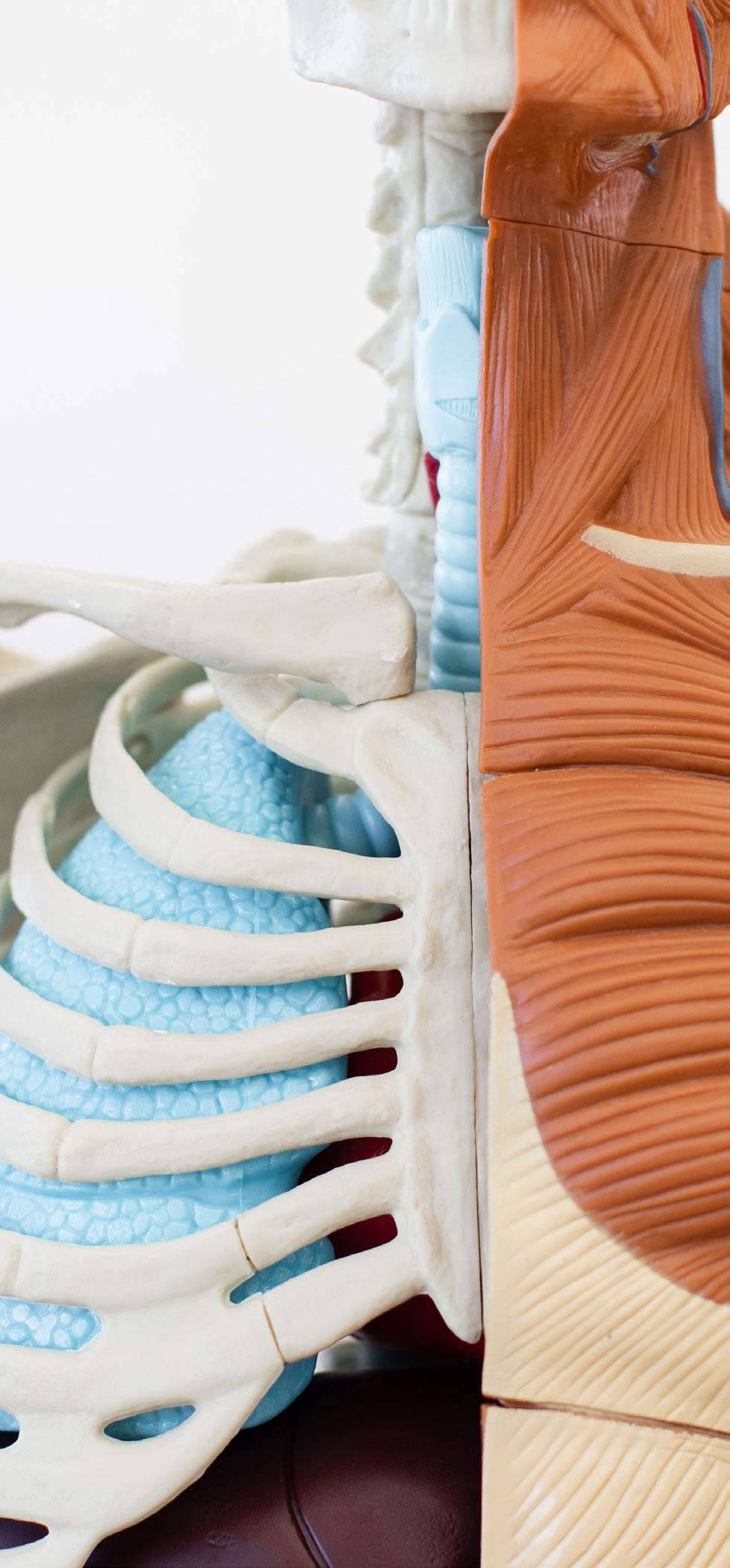
Students should have achieved at least a grade 4-4 in Science.
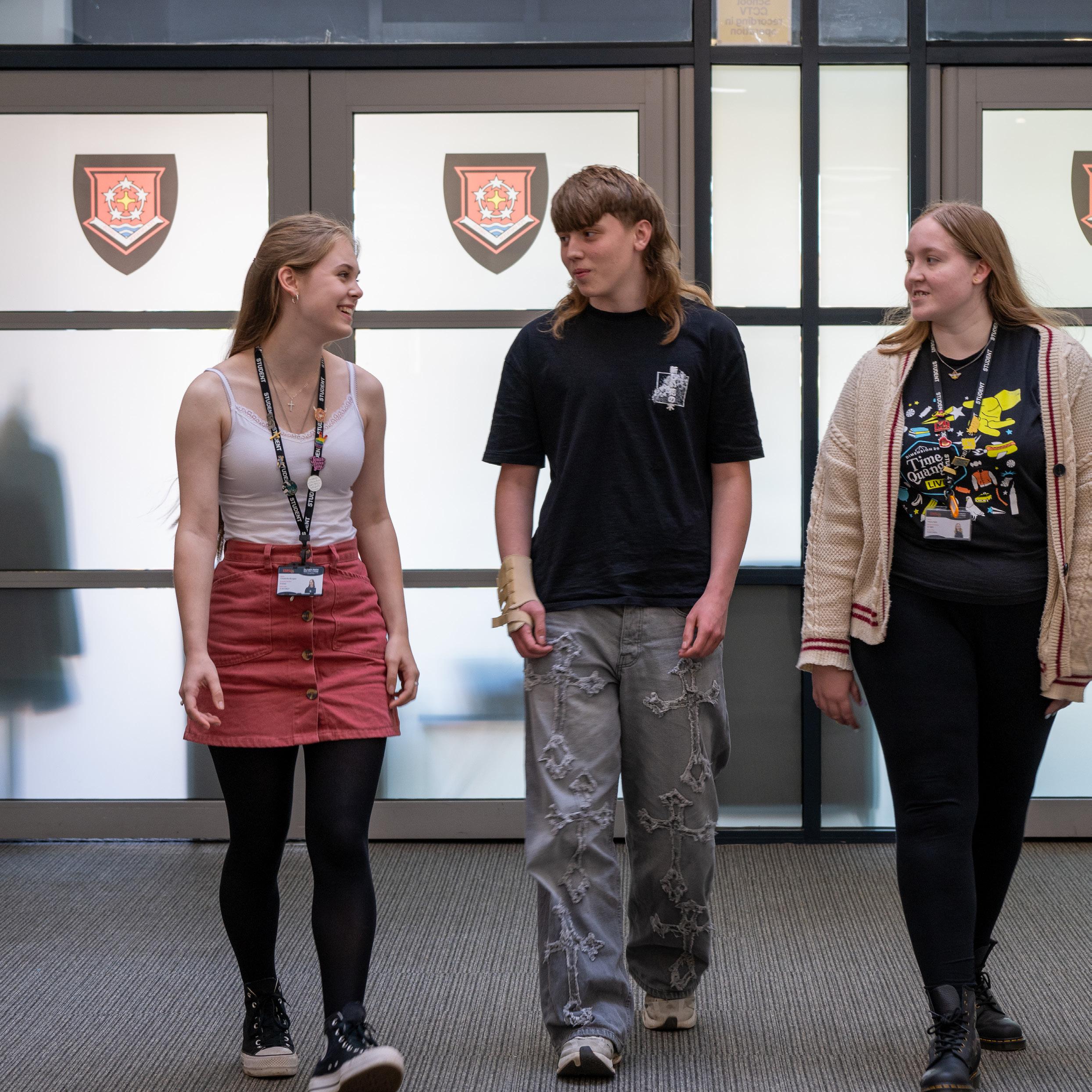
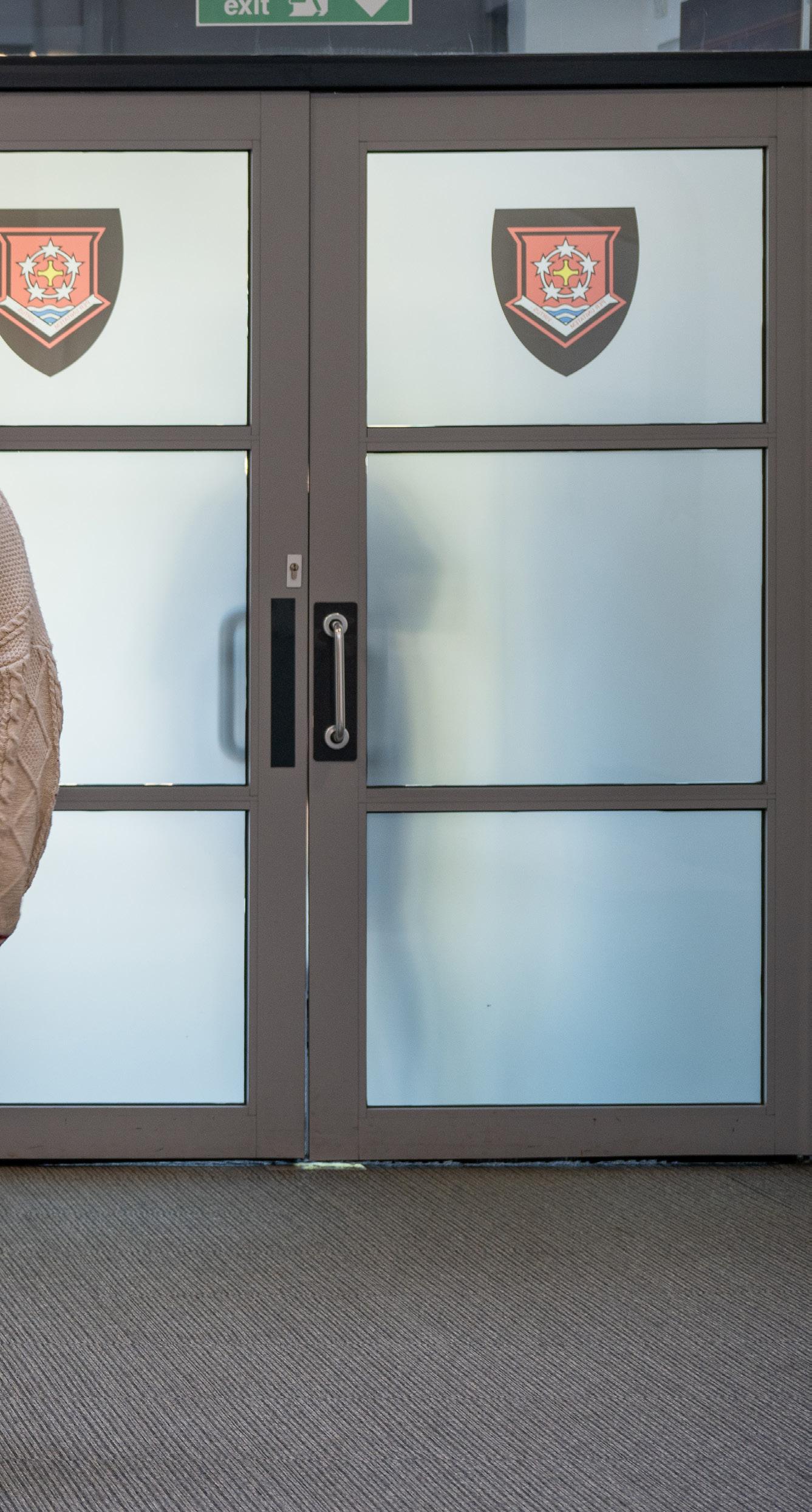
Ready to take the next step in your education? Applying to EM6 is simple and straightforward. You can apply online or in-person during one of our open events or calling us to make an appointment on 01429 273790 or by emailing admin@ems.bhcet.org.uk
You can apply online on our website: ems6.bhcet.org.uk
We look forward to welcoming you to EM6!